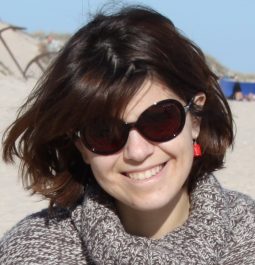Presentation
The Masters in Archaeology is an integral part of the basic training in this professional area, according to the legislation in force. Students with this Masters are qualified to oversee archaeological works (both preventive archaeology and rescue archaeology) and develop projects for the purpose of research archaeological valorisation. Thus, it serves as an outlet to many types of jobs, in central, regional and local public administration, in research centres, in companies, in cooperatives or associations.
On this course, the students acquire in-depth training in the broad thematic areas of specialization of archaeology, covering all the chronological periods of the human past, as well as develop transversal methodologies used in this discipline. In order to equip for most situations that might arise in the domain of archaeology, unique areas are developed in the context of higher education in Portugal and in Europe.
The course includes theoretical and practical training at its various levels. It is closely linked to the work of research units that are well classified by the Foundation for Science and Technology and allows students to have direct contact with teachers, guest lecturers, researchers and professionals, both national and foreign, working at NOVA FCSH. It is centred around archaeological projects carried out in various regions of Portugal, although international archaeological missions are also conducted. It is based on a network of protocols with state institutions, autonomous regions, local authorities, companies, research centres and associations, thus ensuring a close link between the university and the professional world.
Objectives
- To acquire in-depth training in the major areas of chronological specialization and in transversal methodologies in Archaeology;
- To obtain theoretical and practical knowledge that enable the development of research projects and the overseeing of archaeological works;
- To learn how to manage information, reflect, formulate hypotheses and publish the results obtained, preparing reports based on archaeological testimonies;
- To prepare for the participation in scientific debates on historical/archaeological issues, contributing in a creative way to the interpretation of humanity’s past;
- To build the necessary foundations for the incorporation of complementary knowledge, within the multidisciplinary framework necessary for the understanding of humanity’s past;
- To prepare students to practice the archaeological profession, in accordance with the legal stipulations in Portugal and in the European Union, in areas related to preventive and rescue archaeology.
Curricular structure
Duration: 2 years / 4 semesters Credits: 120 ECTS
The first year of the course is academic. Students must attend six seminars, five of which must be in the scientific area of archaeology, according to their interests and professional orientations.
The second year of the course is untaught, and the regime is tutorial teaching. The student will choose the type of work they will develop, which can be more practical or more theoretical, from the three modalities offered: practical work experience with report, project work or dissertation.
Coordination
Faculty staff
- André Teixeira
- Catarina Tente
- Elin Figueiredo
- Francisco Caramelo
- João Pedro Veiga
- João Muralha
- José Bettencourt
- José Carlos Quaresma
- Leonor Medeiros
- Márcia Vilarigues
- Rodrigo Banha da Silva
- Rosa Varela Gomes
- Santiago Macias
- Sara Prata
- Tomás Cordero Ruiz
In all editions of the course there are open classes given by guest lecturers.

